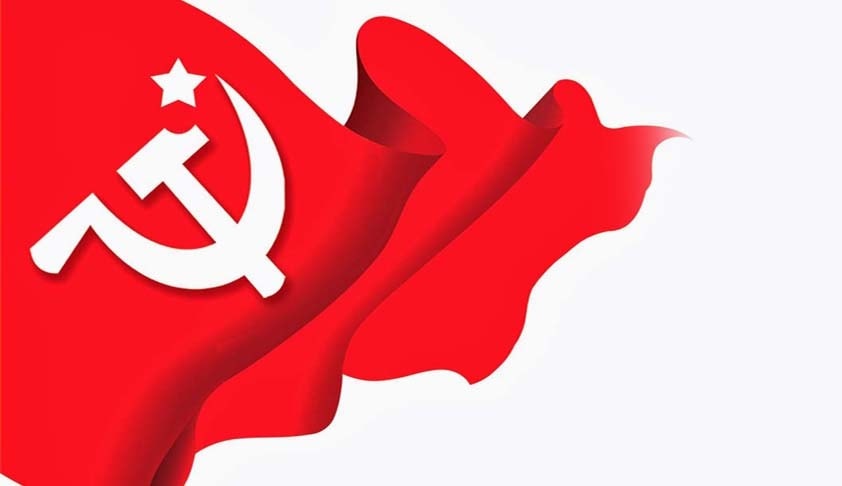
THE prime minister recently made an inordinately delayed visit to Manipur after 28 months – 864 days to be precise – of internecine ethnic violence that was presided over by the then BJP-led government in the state under chief minister Biren Singh. The visit itself was a desperate move to try and retrieve lost political ground in the state. Faced with the prospect of an ignominious loss of confidence in the state government, President’s Rule was imposed shedding its stubborn refusal to dismiss the chief minister.
Much blood flowed in this period, homes and religious institutions were destroyed on both sides of the ethnic divide, more than 260 people were killed, women were gang-raped and paraded, livelihoods were destroyed, over 60,000 were forced to flee their homes and live in sub-human conditions in 'relief' camps, and relations between the Meiteis and Kukis were almost irreparably frayed in a sensitive frontier state.
“Those who cannot ensure peace in the state have no right to govern,” the prime minister had thundered in Manipur in 2017 when the state was ruled by the Congress. The hollowness of his words comes out starkly when we note that subsequently the BJP formed the government in the state, unleashed a divisive campaign and fomented ethnic violence which snowballed into a civil war-like situation, even as he maintained an insensitive silence and inaction when the state burned.
Like the fabled Nero fiddling when Rome burnt, the Indian prime minister showed no empathy or resolve to bring normalcy in the strife-torn state. Understandably, the response of the people of Manipur to the high-profile visit was indifferent and indignant to say the least. Sparse crowds organised for the occasion including school children forced to line-up on a rainy day, the insipid response of people in Imphal as well as Churachandpur were all raising the question what took the prime minister so long; where was he when people were killed, women were raped and houses razed? Why did he allow the fanning of ethnic tensions?
The visit comes even as the “double engine sarkar” failed miserably in maintaining peace, bringing perpetrators of crimes to book and betraying the promises made by Home Minister Amit Shah in June, 2023 of healthcare, housing and education. People are also dying due to lack of medicines, hunger, inaccessibility to hospitals. There are also reports of suicide by people in relief camps. The prime minister did not visit the relief camps of Internally Displaced Persons. He skirted real issues and failed to provide any concrete proposals for restoration of peace and normalcy. Justice for victims of the violence remains a far cry; armed gangs remain unchecked and weapons looted from state armouries are still unrecovered; burnt houses and establishments are yet to be rebuilt.
Manipur was the Sangh Parivar laboratory. The divisive agenda of the Sangh Parivar is engulfing every state in the North East where the BJP has managed to have a foothold. In Assam, the chief minister is spewing venom and spreading hatred against minorities who are facing attacks, evictions, deportation and state repression. Massive protests are on by oppressed communities seeking tribal status. Similar attempts to communally polarise and spread hatred are also going on in Tripura.
In Mizoram, the adoption of the Forest Conservation Amendment Act that grants excessive power to the centre over land is seen as a serious threat to the rights of the Mizo people. The exemption of 100 kilometres along the international border for “strategic linear projects of national interest and concerning national security” is seen as an infringement of Article 371 G of the Indian Constitution as well as Article 244 which safeguards the authority of the Autonomous District Councils. The imposition of Governor’s rule in the Chakma Autonomous District Council after the BJP lost power has also created unease. The disruption of social and economic ties by ending the free movement regime on the Indo-Myanmar border is being resisted by the people in Mizoram and Nagaland. The issue can potentially become a significant flash point.
The Naga peace process is being systematically subverted and is showing signs of severe strain and distress even as the government obstinately refuses to appoint a permanent interlocutor. Stagnation of negotiations after signing of the Framework Agreement on August 3, 2015, which was then hailed by Narendra Modi as “historic”, has led to considerable strain. Unless the process is expedited, there is a danger that restive groups could return to arms. The danger of a possible revival of violence in Naga areas even as Manipur is yet to return to normalcy will further threaten the fragile situation in the region.
In Manipur, as in other states of the region, a free run is being allowed for exploitation of resources – minerals, land, forests – thousands of acres are being handed over to corporate companies in the name of the oil palm mission, mineral exploration and extraction etc.
There is a need to expedite the peace process, reconciliation and harmony. Demilitarisation and gaining the confidence of the people is indispensable. The democratic process and discussions with all stake-holders coupled with strong deterrent action on perpetrators of crimes against humanity can alone lead Manipur on the road to normalcy.
(September 17, 2025)


